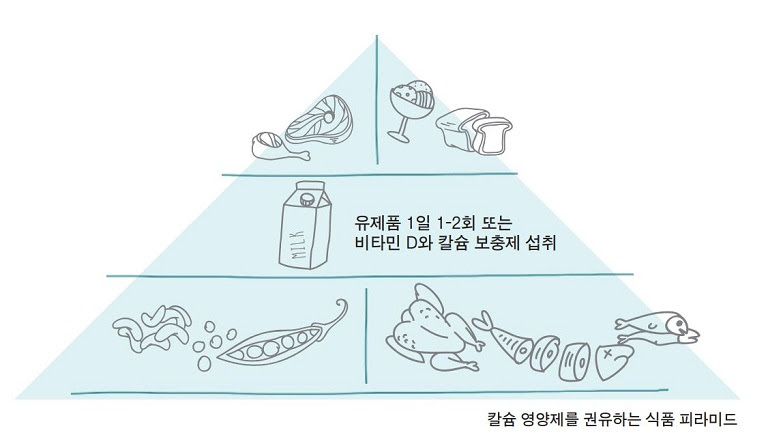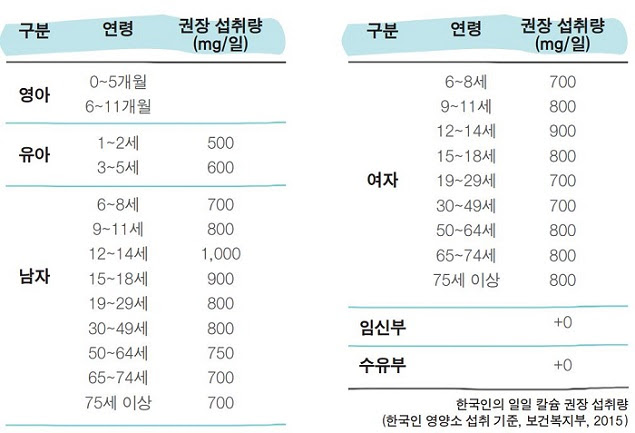
Is there a better way to describe minerals than to say that you are born from the soil and return to the soil? Minerals such as calcium and magnesium are responsible for building bones and coenzymes in many metabolic processes, such as cell-to-cell signaling.Without minerals, life on Earth would not exist. However, due to chemical fertilizer-based agriculture and excessive grain harvesting, mineral intake has dropped to a serious level, threatening the health of modern people.
Today, calcium and magnesium are two of the most susceptible minerals to be lacking. Calcium and magnesium are nicknamed the "hidden masters of metabolism" and help hundreds of metabolisms to improve the body's functions. Considering the Korean diet, there is a need for a separate supplement that contains calcium and magnesium together. Even in countries like the United States, where there is a lot of dairy, there are many people who are deficient in calcium and magnesium. Harvard T.H. Chan School of Public Health If you look at the second column from the top of the food pyramid, there is a sign that says to take a calcium supplement if necessary. In the United States, the recommended daily allowance for adults is 1,000 mg of calcium and 420 mg of magnesium (320 mg for women). One multivitamin is not enough to contain all of these minerals.
First, let's take a look at the calcium that Koreans lack. Twenty-four percent of Americans who take supplements take calcium supplements separately.It is the third most frequently sought-after nutritional supplement after multivitamins and vitamin D preparations. According to the U.S. government's National Health and Nutrition Survey, adolescents (9~13 years old), women aged 14~18, middle-aged women aged 51~70, and half of the elderly population aged 70 and over consume less than the recommended amount of calcium.

The situation in our country is more serious. According to the 2014 National Health and Nutrition Examination Survey, Koreans consume only 68.7% of the recommended amount of calcium per day. Even if they consume less than 75% of the recommended amount, 68.3% of men and 73.9% of women consume less than 75% of the recommended amount. The case is even worse for growing adolescents and the elderly. 76.5% of boys, 83.8% of girls, 74% of men over 65, and 85.7% of women over 65 consume less than 75% of the recommended amount. In addition to vitamin D, calcium is the nutrient that people in Korea are currently lacking the most. The decisive reason for the lack of calcium in our country is that people avoid dairy products. One cup of milk, yogurt, cheese, and other dairy products contains approximately 200~300mg of calcium. That's why the U.S. Department of Agriculture recommends that Americans consume three cups of milk and other dairy products a day.
The greatest need for calcium is in postmenopausal women and growing adolescents. When menopause stops secreting female hormones from the ovaries, calcium is lost from the bones, resulting in osteoporosis. During adolescence, the skeleton needs to grow, so calcium supplementation helps.
It is perfectly reasonable for postmenopausal women to take calcium supplements to prevent bone diseases such as osteoporosis. However, unlike skeletal formation, eating calcium to grow taller is a slightly different matter. It's true that a lack of calcium doesn't make you taller, but eating a lot of calcium doesn't make you taller. Height is largely driven by genes, and other nutrients such as protein in addition to calcium have a collective effect. This means that you are genetically born short and will not grow by eating calcium. Calcium is a requirement for height, not a sufficient condition. You shouldn't take a lot of calcium pills just to increase your height.




![[Calcium & Magnesium Episode 2] If you take calcium pills, do you get stones in your kidneys? | Dr. Esther Yeo](http://esther-mall.com/cdn/shop/articles/46_a1a4dc01-ae74-4de0-b540-f931feb5a084.jpg?v=1734115623&width=480)
![[Vitamin D Episode 3] How Much Vitamin D Should You Take? | Dr. Esther Yeo](http://esther-mall.com/cdn/shop/articles/48_1eff4f00-eade-4a65-88e7-535ee268a33f.jpg?v=1734116775&width=480)